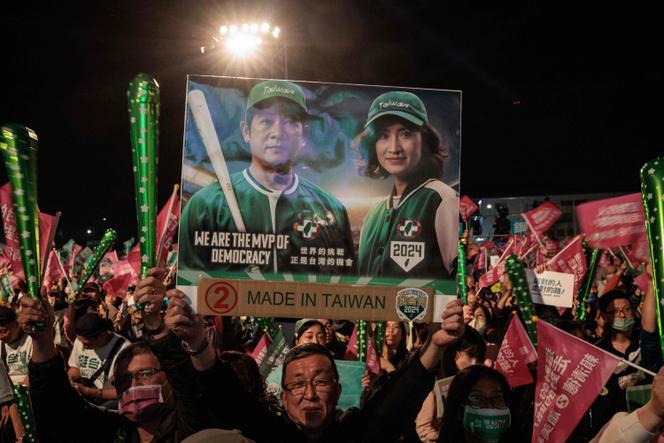


Between these two political forces, a third party is trying to avoid getting too involved in the China question, viewing it as an issue on which there is much criticism and few votes to be won: the Taiwan People's Party (TPP), formed by the populist Ko Wen-je, a former mayor of Taipei. He's betting above all on voters being fed up with the two big parties, and has been omnipresent on social media. In November 2023, his attempt to form an alliance with the KMT's Hou failed: they were unable to agree on who should settle for the vice presidency, reducing the chances of bringing down the DPP. But Ko also takes away from Lai a part of the youth vote − a portion of the electorate sometimes more engaged by everyday issues than by the fight to defend democracy that Lai evokes unceasingly.
The son of a miner who died when he was still a baby, Lai became a doctor after studying at Taiwan's most prestigious university and at Harvard in the United States. He then changed careers, becoming a politician when Chinese missiles were flying over the island during the first democratic presidential election in 1996. Successively member of parliament, mayor of Tainan, the large southern city, prime minister and unsuccessful candidate in the DPP primary against Tsai in 2020, before settling for the vice presidency, the seasoned politician is biding his time. He toured the island seven times during the campaign, leaving no stone unturned and appearing perfectly groomed at every appearance.
At each rally, voters raised economic and social issues. These include housing prices and salaries, which have not kept pace with the rising cost of living (except in the semiconductor sector, the pride of the country) and aid to encourage couples to have children, at a time when the birth rate is falling steadily. But the issue that deeply divides the political class is the attitude to adopt towards China. "We must continue on the road to democracy, and to do so, we must choose the right person," said Lai, 64, his "Team Taiwan" baseball jacket slung over his back.
A few dozen meters away, on the railway platform, Fan Li-ti listened with a curious ear. This 37-year-old woman clad in jeans and checkered Vans sneakers isn't an activist − she had just got off the train that brings her back from Taipei every evening, where she works in tech. "If we can do business with China, fine, but we mustn't give up our rights," said Fan, who plans to vote for the DPP but without great conviction. Like her, many people are worried that fostering too close of a relationship with China could lead to Taiwan being swallowed up politically and economically. Many also fear military reprisals in the event of a head-on challenge.
You have 75% of this article left to read. The rest is for subscribers only.
